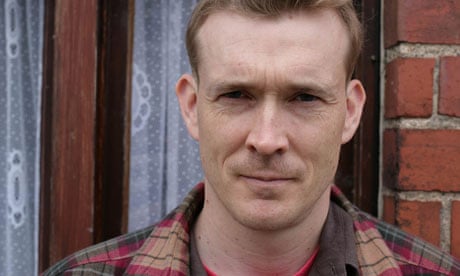There are two schools of thought about Cloud Atlas: the first believes it approaches genius; the second thinks it's too clever by half. When the book reached the US, it did so on a tide of ecstatic publicity. "The reviews have been Messiah-worthy," wrote Tom Bissell in the New York Times. "One critic wrote that the novel makes 'almost everything in contemporary fiction look like a squalid straggle of Nissen huts'." Yet Bissell himself was unconvinced: "This is a book that might very well move things forward. It is also a book that makes one wonder to what end things are being moved."
By the time the novel was nominated for the Man Booker prize, plenty of UK journalists had sharpened their knives, too. "It is one of those flashy rather empty novels," thundered David Robson in the Telegraph, "where the author leaps from setting to setting, narrator to narrator, more concerned with showing off his ventriloquial skills than telling a coherent story."
To an extent, I can see what he means. The book comes in 11 parts, containing six separate narratives, all written in different styles and spanning thousands of years and miles. A summary (I was going to write "brief summary" but the complexity of the book makes that impossible) should give some idea of the scale of Mitchell's ambition – or of the problem, depending on your point of view.
First, we are taken to the mid-19th century and the South Seas, where Adam Ewing, a notary from San Francisco, writes an increasingly unsettling journal of his journey to the remote Chatham Islands and the abusive nature of the hierarchy on his ship.
Second comes a series of high camp letters written by Robert Frobisher to his lover Rufus Sixsmith shortly after the first world war. Frobisher, on the lam from debt and disgrace in England, wheedles his way into the house of famous ageing composer Vyvyan Ayrs, working as his amanuensis and sleeping with his wife on the side.
Third, there is a 1970s Erin Brockovich-style environmental thriller about journalist Louisa Rey's death-defying attempts to get hold of a report written by a scientist (named Rufus Sixsmith) detailing the design problems of a proposed nuclear reactor.
The fourth part takes place in the here and now, following Thomas Cavendish, the 60-year-old owner of a vanity publishing house, who finds himself trapped in an old people's home.
The fifth moves into the future where Somni 451, a genetically engineered "fabricant", answers a series of questions about her "ascension" from a world of ignorance, slavery and dishing up food in an underground fast-food restaurant.
Sixth, we follow a tribesman called Zach'ry through a stone age version of a more distant future, where only a few people carry the guttering flame of civilisation after man's "hunger for more" has "ripped up the skies, boiled up the seas and poisoned the soil".
The first five parts all end in cliffhangers. Only the sixth reaches a conclusion, while also acting as a kind of narrative mirror, since, afterwards, the other narratives are completed in reverse chronological order. They each reach conclusions of their own while feeding into a grand central conceit about the way those desiring power destroy the thing they crave. "The weak are meat the strong do eat," we are told very late in the 11th part of the book – but by that stage we have also already been informed that "winners are the real losers because they learn nothing" and that "rats' nests & rubble is what all belief turns to one day".
As well as these thematic connections, there are other tricksy narrative links. Frobisher discovers Ewing's journal at Ayrs's house (naturally, in two separate halves); Luisa Rey comes across Frobisher's letters as Sixsmith, the nuclear scientist, was their original recipient. She also manages to hear the music Frobisher was working on in Bruges: The Cloud Atlas Sextet. Cavendish receives Luisa Rey's story as a novel sent to his publishing house. Sonmi watches a film of Cavendish's ordeal. Zach'ry's people view Somni as a god, and recordings of her story form one of the few preserved artefacts from the lost civilisation. The main characters all also have comet-shaped birthmarks.
All of which creates the feeling that Mitchell is playing games – especially since he is so keen to remind us that he's one step ahead. Cavendish, for instance, judges the Luisa Rey story just as a cynical reader might: "One or two things will have to go: the insinuation that Luisa Rey is this Robert Frobisher chap reincarnated, for example. Far too hippy-druggy – new age." Someone in the second Somni section also asks: "Didn't you spot the hairline cracks?", before pointing out all the narrative inconsistencies in this "fake adventure story". Mitchell even has the audacity to write his own review. "Revolutionary or gimmicky?" Frobisher demands of his Cloud Atlas Sextet. Eventually, he decides it is good – "an incomparable creation".
I can understand why some might object to such metafictional fooling. But I find it hard to disagree with Frobisher. Cloud Atlas is an incomparable creation, and Mitchell's games just make it all the more fun. Those "ventriloquial skills" that annoyed David Robson had me mesmerised. Each voice is strong and true enough to guarantee that crucial emotional as well as intellectual involvement. It was excruciating to abandon the characters at the various (and invariably brilliant) cliffhangers. They are – whatever Robson may say – coherent, powerful stories, and they add up to an impressive whole.
Finally, in case I haven't convinced you, how about these three quick examples of Mitchell's delicious prose: 1. "My bruises, cuts, muscles & extremities groaned like a courtroom of malcontent litigants." 2. "In the smoky firelight the two old men nodded off like a pair of ancient kings passing the aeons in their tumuli." 3. "What's a reviewer? One who reads quickly, arrogantly, but never wisely." Who could argue with that? Over to you – comments will be most appreciated, as they'll help inform John Mullan's final book club column this month.






Comments (…)
Sign in or create your Guardian account to join the discussion